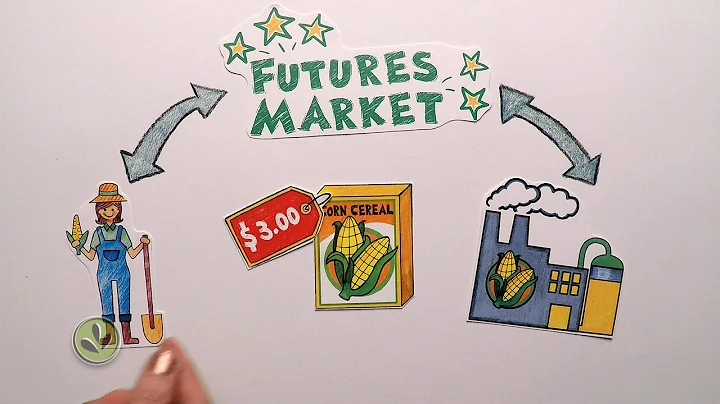How do you read commodity futures prices?
The most common type of commodity price chart is the bar chart, where daily prices for a particular contract month are plotted as a vertical bar. The top of the bar (or line) represents the high price for the day. The bottom is the day's low and a small horizontal tic on the right side is the closing price.
A futures price is determined by the cost of its underlying asset and moves in sync with it. The cost of futures will rise if the cost of its underlying increases and will fall as it falls. But it is not always equal to the value of its underlying asset. They can be traded at different prices in the market.
Moving averages are simple and effective, as they smooth out the market trends and filter out daily fluctuations. When current prices are above the moving average line, an upward trend is indicated. Similarly, a declining trend is signalled when prices are below the moving average line.
Commodity futures prices can be calculated as follows: Add storage costs to the spot price of the commodity. Multiply the resulting value by Euler's number (2.718281828…) raised to the risk-free interest rate multiplied by the time to maturity.
A commodity futures contract is an agreement to buy or sell a particular commodity at a future date. The price and the amount of the commodity are fixed at the time of the agreement. Most contracts contemplate that the agreement will be fulfilled by actual delivery of the commodity.
Futures are financial contracts obligating the buyer to purchase, and the seller to sell, an asset at a predetermined future date and price. They are standardized contracts traded on futures exchanges.
Common tools and techniques for technical analysis in futures trading include trend lines and channels to spot support and resistance levels, breakouts, and reversals; moving averages to identify trend direction, strength, and crossover signals; oscillators to gauge overbought and oversold conditions, divergence, and ...
Momentum indicators are the most popular for commodity trading, contributing to the trusted adage, “buy low and sell high.” Momentum indicators are further split into oscillators and trend-following indicators.
A commodity market involves buying, selling, or trading raw products like oil, gold, or coffee. There are hard commodities, which are generally natural resources, and soft commodities, which are livestock or agricultural goods.
Commodity prices are the prices at which raw materials or basic foodstuffs are bought and sold. A variety of factors can influence commodity prices, from weather patterns to political upheaval.
How do commodity futures work?
Commodity futures are derivative contracts in which the purchaser agrees to buy or sell a specific quantity of a physical commodity at a specified price on a particular date in the future. Derivatives are investments that derive their value from the price of another asset, typically called the underlying asset.
Futures are a type of financial derivative in which you agree to buy or sell a certain asset at a certain price at a particular time in the future. Commodities are a type of asset representing fungible goods, such as oil, iron ore, or wheat. Commodities are usually traded using futures.

Commodity futures can be used to hedge or protect a position in commodities. A futures contract also allows one to speculate on the direction of a commodity, taking either a long or short position, using leverage. The high degree of leverage used with commodity futures can amplify gains, as well as losses.
There are three major types of commodities; agriculture, energy, and metals. These three are differentiated in the means of accessing them. The means of accessing them is based on whether they are hard or soft.
It indicates that demand is higher than supply in the short term, causing futures prices to rise. Futures prices rise above spot prices because investors become comfortable paying more for the future assets. However, commodity and volatility funds are structured to buy short-term futures.
The primary purpose of commodity futures is to provide a mechanism for hedging against price volatility. For example, a farmer may enter a futures contract to sell his wheat at a fixed price before the harvest to protect against potential price fluctuations.
Futures traders include arbitrageurs and spread traders, investors who use price discrepancies between different markets or related instruments to profit. They are a kind of speculator, buying and selling futures or other financial instruments to profit from cross-market price differences.
The futures value is the current futures price multiplied by the contract size. The futures value is the agreed amount that will be paid for the asset/commodity on maturity of the futures contract.
Futures investing is found in a variety of markets, such as stocks and commodities, but it's not for beginners.
Indicators like Volume Profile HD, Supertrend, RSI, and Bollinger Bands provide deep market insights, crucial for navigating the swift currents of futures markets. Whether it's identifying market trends, assessing volatility, or making quick, informed decisions, these tools are invaluable for any futures trader.
What is the best time to trade futures?
1:00 – 3:00 PM is the most liquid part of the afternoon as professional traders balance their books into the close, the last 20 minutes or so into 3:00 PM, the highest volume.
By focusing on a single market, you can get up to speed quicker. Trading futures for a living is a compelling idea — but to do it successfully, you'll need sufficient startup capital and a well-designed trading plan.
The most traded commodity is crude oil. Crude oil is used in many products, from petrochemicals to petroleum to lubricants to diesel.
Three of the most commonly traded commodities include oil, gold, and base metals.
Another of the commodity trading secrets is paying attention to a factor that is unique to commodities as opposed to other investment vehicles and which tends to significantly drive prices – seasonality. Nearly all major commodity markets tend to follow established seasonal price patterns.